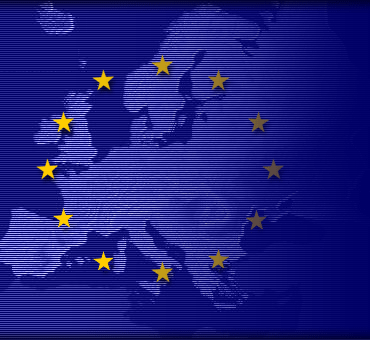A View from Abroad

I am not Irish. I live in Canada. I do research in Ireland and I have many friends and colleagues here, so I have been following closely the current political and economic situation. I am not directly affected by the terms of the latest austerity budget, and thus, I don't have the vested interest in its outcome that most readers of this blog do. Nevertheless, I write this intentionally as an outsider, to share one outsider's perspective.
The anger of Irish citizens that has been directed at their government in the last few weeks has been breathtaking. There is fear, political frustration, and a good measure of an almost-personal offence at being left in the dark, perhaps even lied to by Fianna Fail (I have witnessed this primarily, though not exclusively, via Twitter).
Without intending to diminish the justification for that anger, nor the devastating impact the budget will have for many, I am going to suggest that to us outsiders, the political struggle over the budget does not matter. At least on the surface, the incompetence of Fianna Fail, and the complicity of the Greens, is not the story. The story from the outside looking in is the great cracking sound echoing across the EU.
The economic crisis has only begun. Greece and Ireland's unaffordable bailouts will be followed by certain anxiety in 2011 when Portugal, Spain and Italy face bond repayments that are nearly double the debts faced in any other year in the near future. It is not clear that the ECB and the IMF have the funds or the desire to continue to come to the "rescue" of states unable to pay their bills. The economic unity of the EU, especially for the Eurozone, is precarious.
The divisions are political as well. I would link Austria's further demands on Greece, Finland's reticence to co-operate on bailout terms for Ireland, and Germany's reluctance to share its wealth to France's recent treatment of the Roma population within its borders. While France may support its position on deporting these residents to Romania with the letter of the law, its actions fly in the face of an EU with unrestricted mobility.
The EU is in the midst of two divisive internal battles. The first is along the lines of political geography. One of the most politically fragmented regions of the world is seeing its national/cultural differences resurface with a vengeance. This resurgence probably surprises few observers.
The second war cuts across national lines to dissect along class lines. There are profoundly different opinions as to how the EU should negotiate its way out of the economic crisis. Will it be more of the "privatised profits, socialised losses," or a reconsideration of the state's obligations to its citizens?
And so, having said that the Irish budget "does not matter," I would reverse that somewhat and argue that this is where the domestic politics of the Irish budget are much, much more than a local story at the margins of Europe. Will Irish citizens direct their anger at a political party or an entire political economic order? The choices Ireland currently faces are *the* story of the EU and its political economy, and the outcome will likely impact the decisions made by other countries when they arrive at the same electoral fork in the road.
